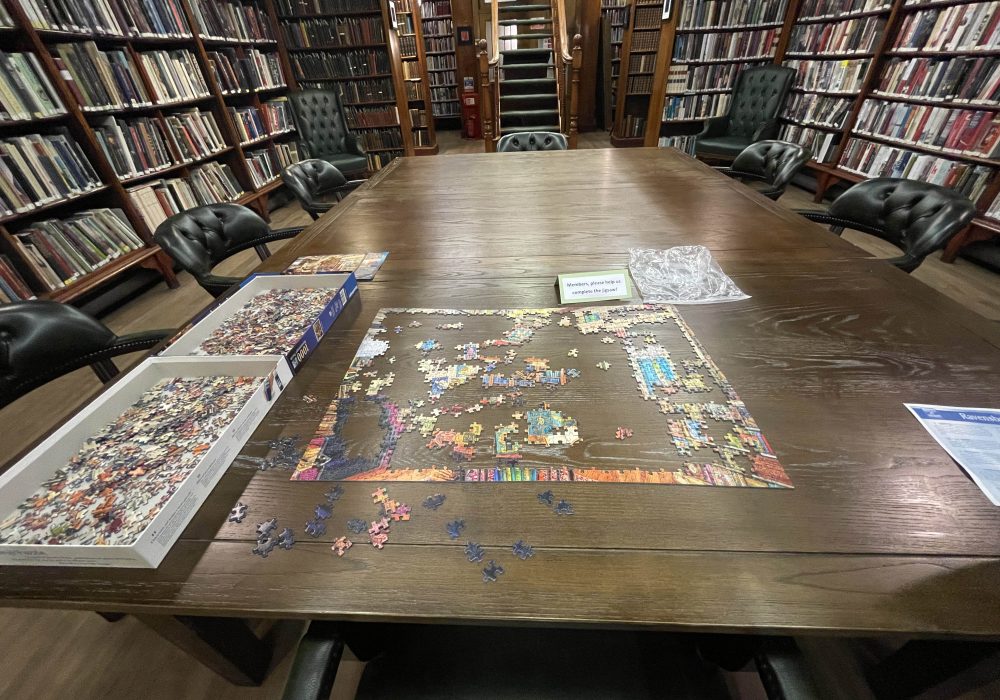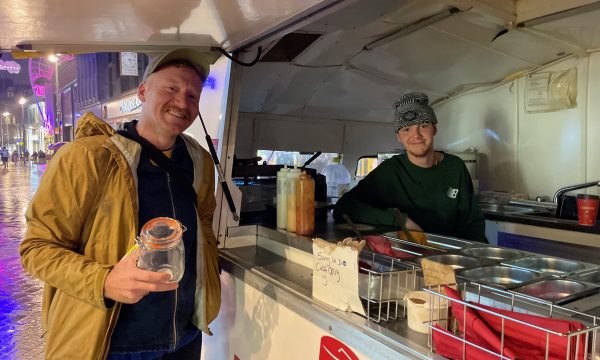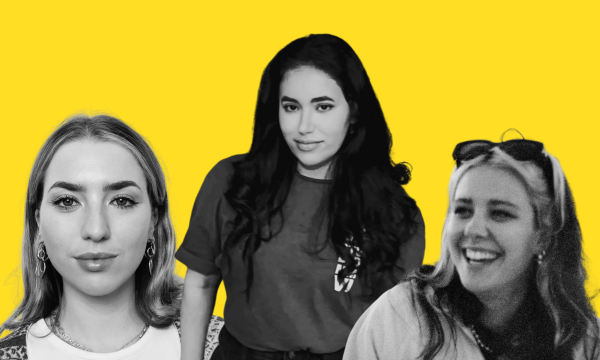As part of our Collaborate Funded Research our lead researcher Lauren Hall shares the methodology behind the ‘Walking Interviews’.
Compass has ten years of experience producing socially engaged, interactive live art in the public realm. Through processes of ‘making with’ – such as co-creation and community participation – Compass produces work in non-art spaces that engages under-represented, traditionally non-arts attending groups in an impactful manner.
The Collaborate research partnership investigates the experiences and impacts of ‘making with’. It does so by utilising participatory and creative research methodologies which mirror the creative practices of Compass. Through ‘researching with’ we are exploring the cultural values and experiential qualities that both artists and participants ascribe to different relationships of ‘making with’. The project utilises dialogical workshops with both artists and participants to explore in a co-productive fashion diverse experiences, understandings and values placed upon ‘making with’. Meanwhile, a broader group of participants to previous festivals are engaging in ‘walking interviews’, revisiting the locations of previous Compass Festival events to explore enduring memories of impact and agency.
The Collaborate research has begun walking interviews to capture data relating to people’s understanding of place, co-creation, and community. It is argued that walking interviews generate richer data, because interviewees are prompted by meanings and connections to the surrounding environment and are less likely to try and give the right answer. Walking in the street means that both researcher and participant are more exposed to the multi-sensory stimulation of the surrounding environment, rather than cocooned in a filtered ‘blandscape’ (Edensor, 2007). This gives an immediacy that makes for a different experience to those methods which are essentially sedentary.
A major advantage of walking interviews is their capacity to produce insights into attitudes and knowledge about the surrounding environment. Walking has long been considered a more intimate way to engage with landscape that can offer privileged insights and knowledge into both place and self. Ingold and Lee (2008) suggest that walking with interviewees encourages a sense of connection with the environment, which allows researchers to understand how, for example, places are created by the routes people take.
Within this research, the routes are determined by the interviewees, but were not necessarily habitual routes and were thus partially made up on the spot. Walking interviews differ because they can produce quantitative data concerning the routes taken, as well as the more familiar qualitative date derived from the conversational exchange. This means the walking interviewees not only share memories of projects, but also the geographical locations that hold significant value to their engagement with Compass Festival.
We have already started our pilot walking interviewees, with participant recruitment ongoing. So far, the methodology has generated more place-specific data, which is spatially focussed, as well as containing autobiographical narrative. The methodology has also demonstrated a highly productive way of accessing a community’s connection to their surrounding environment – which is opening questions of people’s relationship with places and the contemporary policy issues surrounding sustainability, and legacy of co-creation.
The Centre For Cultural Value has reopened the Collaborate Fund for expressions of interest until the 25th of November. You can learn more here.



